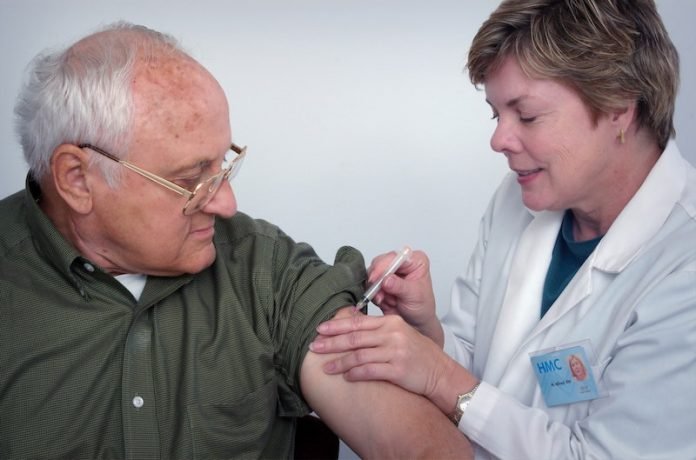
In a new study, researchers found that vaccinating older adults for COVID-19 first will save substantially more U.S. lives than prioritizing other age groups.
They also found that the slower the vaccine rollout and the more widespread the virus, the more critical it is to bring them to the front of the line.
The research was conducted by a team at the University of Colorado Boulder and elsewhere.
In the study, the team drew on demographic information from different countries, as well as up-to-date data on how many people have already tested positive for COVID-19, how quickly the virus is spreading, how fast vaccines are rolling out and their estimated efficacy.
Then they modeled what would happen in five different scenarios in which a different group got vaccinated first: Children and teenagers; adults ages 20 to 49; adults 20 or older; or adults 60 or older (considering that about 30% of those eligible might decline).
In the fifth scenario, anyone who wanted a vaccine got one while supplies lasted.
Results from the United States, Belgium, Brazil, China, India, Poland, South Africa, Spain and Zimbabwe are included in the paper, with more countries included in the online tool.
Different strategies worked better or worse, depending on local circumstances, but a few key findings jumped out.
In most scenarios, across countries, prioritizing adults 60+ saved the most lives.
The team says age is the strongest predictor of vulnerability. While pre-existing conditions like asthma boost the risk of severe illness or death, age boosts vulnerability more.
The authors also note that, while the vaccines being distributed now are believed to have about a 90 to 95% chance of protecting against severe disease, researchers don’t yet know how well they block infection and transmission.
If they don’t block it well and asymptomatic spreaders abound, it again makes the most sense to vaccinate older adults. If nothing else, they’ll be personally protected against grave disease.
The paper also suggests that in some situations where COVID has already infected large swaths of the population and vaccine is in short supply, it might make sense to ask younger adults who have already tested positive to step to the back of the line.
The authors stress that vaccines alone are not the only tactic for helping win the race against COVID.
They have already informed policy recommendations by the Centers for Disease Control and the World Health Organization to prioritize older adults after medical workers.
One author of the study is Daniel Larremore, a computational biologist in the Department of Computer Science.
The study is published in the journal Science.
Copyright © 2021 Knowridge Science Report. All rights reserved.



